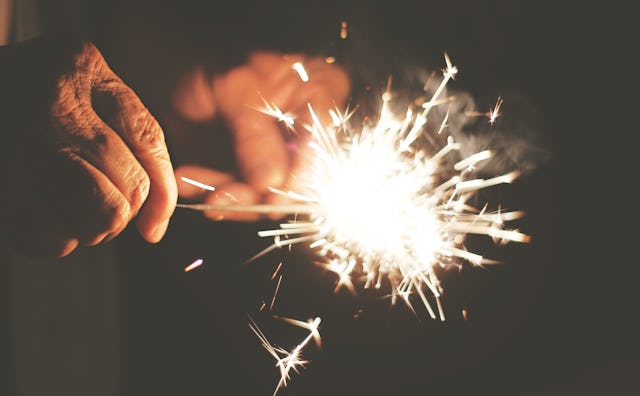My Father's Birthday Means I'm Growing Older Too

When I heard my dad’s age I balked, because my mom is a year older than he is. “But that means Mom is…” I started, and my dad laughed. “Thirty-nine!” he answered. Except she’s not, because as I reminded him (and I think this shocked him a little), 39 is how old I will be at my next birthday this summer.
I left my home state for college when my parents were in their mid-40s. When I returned with my young family, they were almost 60. I am now realizing how much of them I missed. Sometime in the past ten years, they aged. They get senior discounts now when we go to theme parks and movies. They are still busy, working, active jet-setters, don’t get me wrong. But they aren’t the same.
When my children are at school and the phone rings and I see the school’s name in the caller ID, without fail, my heart stops beating until the voice on the other end of the line assures me that my kids are okay. I can’t help it. The fear came along with the the role of mother to school-age children, special subset: boy mom. I will admit to something further, though: any time the phone rings after 8 p.m. and the caller ID says my parents’ phone number, my heart stops too.
At lunch with my friends, we don’t just talk about our kids and their schools and our travel plans for spring break anymore. We talk about our parents. We talk about their health—the cancer diagnoses, the onset of dementia, the worry we have about their driving or their finances. We talk about health insurance. We talk about estate planning. The truth is that I am 38 years old, and I lose sleep at night worrying about both my children and my parents. I’m in the middle, and I no longer find it a mystery that my peers and I need so much anti-anxiety medication and therapy. There is a lot to be anxious about in the middle.
When I am around my parents, I still don’t really feel like a grown-up. I feel like a teenager—admittedly, a teenager with a whole bunch of children who call her “Mommy,” but a teenager. I still regard my parents as the grown-ups, even though I am decidedly an adult. I grew up with so many things to look forward to and to work toward, and at this moment in my life, it feels like I have done most of them: I have graduated from college, worked and had career(s), married, had babies and more babies. I’ve bought and sold houses and traveled and volunteered and slowly checked off box after box on my life’s to-do list. I have so much, both literally and figuratively, but now it feels like I am moving into a stage of life that will start to be defined by loss—my babies will grow up, my body will change and probably not for the better, and my parents will age even more. I feel like the things I hold most dear are starting to slip through my fingers like so many grains of sand. Is this what is called mid-life? Am I due for a crisis?
At the heart of this angst is the fact that I am very blessed and lucky to have so much that I love in my life, including a set of grandparents of my own. But along with these blessings is the inevitability of loss, and I have a lot to lose. As I move through my days, trying my very best to figure out what I am doing in this whole parenting enterprise and feeling often like I am failing miserably, I also have worry sitting heavily on my shoulders. I’m waiting for a shoe to drop. I’m waiting for my heart to break.
My parents are the ones who introduced me to a love of music, and my father loves Fleetwood Mac. So often now I have lyrics running through my head…
Oh mirror in the sky,
What is love?
Can the child within my heart rise above?
Can I sail through the changing ocean tides?
Can I handle the seasons of my life?
Well I’ve been afraid of changing
‘Cause I’ve built my life around you
But time makes you bolder
Children get older
I’m getting older, too.
My people big and small are getting older, and I’m getting older, too. And it does, in fact, feel like the ground beneath me is sliding right out from under me in many ways.
This article was originally published on